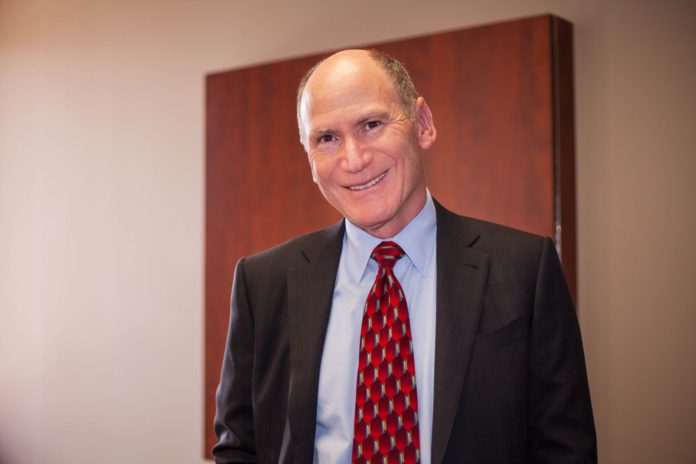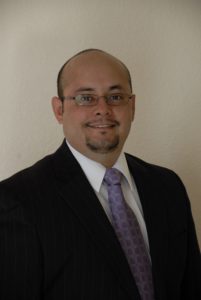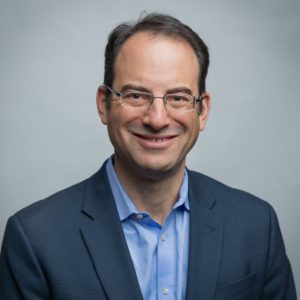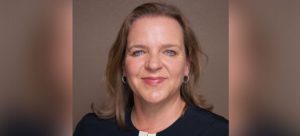
Democratic attorney general candidates agree on a lot of issues, but more than anything else is the idea that this election is important.
The four Democratic candidates on Wednesday participated in a forum sponsored by the Colorado South Asian Bar Association focused on diversity issues.
With questions posed to the candidates focused on topics such as increasing diversity within the Office of the Attorney General itself as well as community policing and cooperation with Immigration and Customs Enforcement, the conversation largely turned on how the candidates would differ from current Colorado Attorney General Cynthia Coffman or Republican hopeful George Brauchler and how an independent attorney general can affect the state’s policies.
Following the state Democratic Assembly on April 14, Phil Weiser and State Rep. Joe Salazar are set to run in the June 24 Democratic primary while Brad Levin and Amy Padden are hoping to petition onto the primary ballot.
They have filed petitions, but as of press time, the Secretary of State had not yet approved their petitions.
Coffman’s policies and actions as attorney general set the context for the evening. Her office has started an Office of Community Engagement to connect with members of diverse communities, though Salazar indicated that he hasn’t seen members of that office involved in the communities, and Levin referenced the office as a good example of when actions matter more than words.
The candidates also referenced Coffman’s apparent inaction in tracking and prosecuting hate crimes as well as her dispute with Gov. John Hickenlooper over her authority to challenge the Obama administration’s Clean Power Plan as further examples of how the Attorney General’s Office wields power and influence in the state but that they believe Coffman hasn’t represented the interests of the state.
The AG’s Office and the Community
With diversity in mind, the candidates discussed the role they believe the Attorney General’s Office plays in the community as well as how they would staff the office in order to reflect that diversity.

Salazar pointed to his legislative record as well as his involvement with Colorado’s Latino community to establish his credentials on the matter. While the discussion was friendly, for the most part, Salazar did call out his rivals for lacking the presence in diverse communities that he said he has. In staffing the office, he said he doesn’t need to look for people in the community because he already knows them.
Levin, however, identified a problem of homogeneity within the state’s Department of Law and the legal community as a whole.
Weiser, meanwhile, said diversity initiatives such as the Colorado Pledge to Diversity were core to his mission as CU Law dean and that he’s interested in the “long game” of changing the demographics within the legal profession, not just the Attorney General’s Office.
Criminal Issues
Candidates were asked specifically about their priorities for prosecuting hate crimes and their stance on gun control.
And on those issues, the candidates largely agreed in the need to track and prosecute hate crimes to the fullest extent of the law. Salazar touted his votes cast in favor of a hate crime statistics reporting law.
The candidates were also in agreement on the need for treatment and diversion programs for drug offenders in order to reduce the prison population. Weiser also pivoted the discussion on crime to include the importance of implicit bias training and de-escalation training for police to demonstrate how his office might promote “moral leadership that goes against hate.”

Inter-office Cooperation
Candidates were pressed on how they would interact with a variety of offices and officials, including district attorneys, a governor from either political party and the federal government. Across the board, the candidates said they believed local law enforcement should not be directed to cooperate with ICE — with Levin saying local law enforcement would not do ICE’s job for it.
The candidates also were in agreement that the attorney general should act independently from the governor.
On the role of the attorney general, the candidates also said it has become politicized of late.
Levin said that the state’s citizens have seen the attorney general’s independence be used for political reasons while Weiser said Coffman’s decisions to challenge the EPA’s methane rule — which originated in Colorado before the agency adopted it — served as an example of the office’s politicization and what’s at stake in the attorney general election.
On the topic of the AG’s involvement with district attorneys in how they investigate incidents involving law enforcement, Padden suggested that Colorado place jurisdiction of such investigations under the attorney general rather than district attorney and also said there should be more training under the state’s Peace Officer Standards and Training program.
Going on the Offensive
Brauchler’s ears must have been burning Wednesday evening. The event was the third attorney general candidate forum and the third that Brauchler hasn’t joined. Unlike his Democratic counterparts, Brauchler is running an uncontested race in the Republican primary.
Padden called attention to Brauchler’s absence and at many points in the evening seemed to identify him as her competitor rather than the three other candidates heading into the primary.

She called out Brauchler as 18th Judicial District Attorney for failing to do anything to keep guns out of the hands of Matthew Riehl, the man who shot several Douglas County sheriff’s deputies on New Years Day and used that incident as an example for why she believes the states need a Red Flag law, which would give judges the power to take guns away from prior offenders.
All other candidates at the evening’s event agreed in saying they believed the state should have a red flag law.
And Padden wasn’t alone in singling out Brauchler. Weiser said that nobody can be sure Brauchler would recognize the Colorado Civil Rights Commission.
While the candidates mostly shied away from directly challenging one another, Padden did go on the offensive against Salazar at one point, challenging him on a gun control issue. Salazar voted against increasing fees for firearm background checks, which she said was a vote in favor of the gun lobby. Salazar, however, said his vote was because of a budgeting error in the bill.
— Tony Flesor

